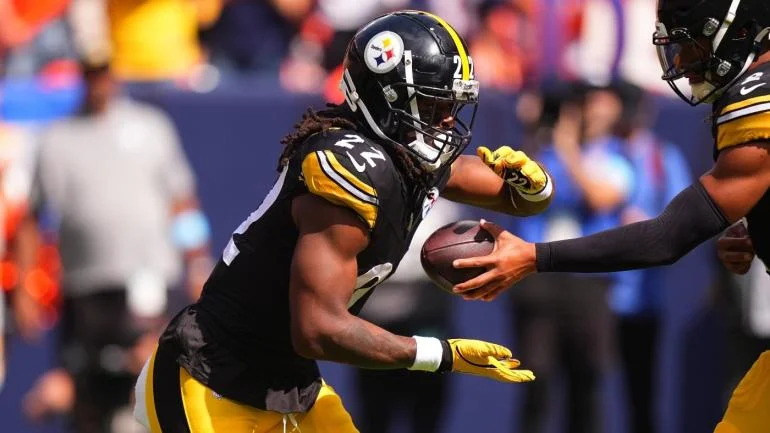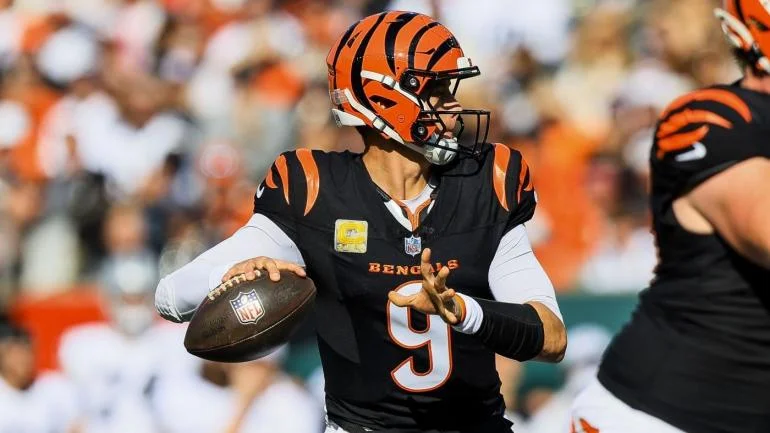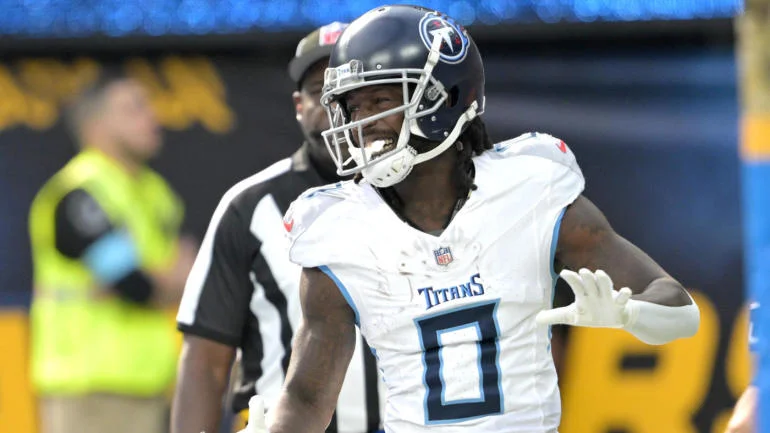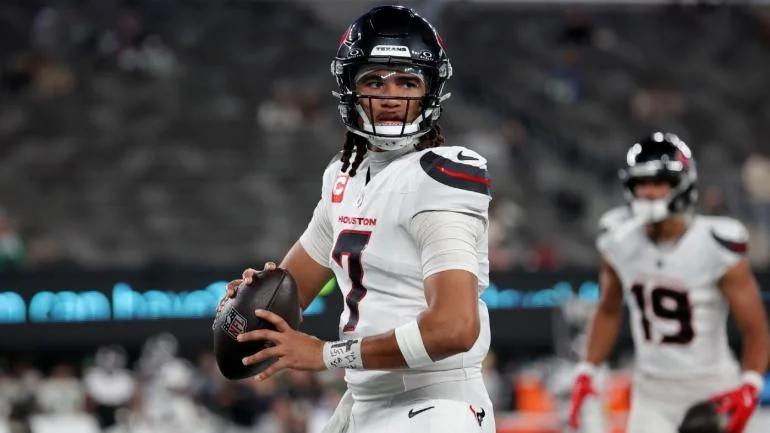Step one: don’t overrate your chances
LeSean McCoy had another strong season for the Bills.
The Buffalo Bills may have been the most surprising success story in the league. Sure, the Rams and Jaguars were breakout teams themselves, but they both had a lot of talent bubbling under the surface. Meanwhile, the Bills didn’t look like a playoff contender — and they didn’t act like a playoff contender (trading away players, starting a rookie QB, etc).
And in truth, the Bills may NOT have been a true playoff contender. They finished 9-7, but that came with a – 57 point differential that suggests they probably should have been around 7-9 or 6-10 instead. If you go over each facet of their team, there are serious concerns at almost every level:
PASSING OFFENSE. An obvious issue here, with the team passing for fewer yards than 30 teams in the league. They couldn’t get the ball to their wide receivers, as illustrated by the fact that Deonte Thompson led his peers with grand total of 430 yards. If the team ditches Tyrod Taylor, the passing game may even take a step back from here.
RUNNING OFFENSE. A quick glance over would suggest the Bills ran the ball pretty well. They finished with 2017 yards, 6th most. Star RB LeSean McCoy held up well, with 1500 total yards. But given where Buffalo started, this actually represents a decline. In fact, the Bills led the entire NFL in rushing yards in both 2015 and 2016, averaging 2500+. They struggled to adapt to the scheme of Rick Dennison (now gone). With McCoy aging and center Eric Wood retiring, this decline may continue.
RUNNING DEFENSE. The team allowed opponents 4.3 yards per carry — bad, but not embarrassingly bad. However, that’s a season-long mark; their trend line was much worse. After the trade traded away malcontent run stuffer Marcell Dareus, they got run over. Their week 10 loss to New Orleans represented the low watermark, allowing 298 yards on the ground alone.
PASS DEFENSE. Okay, here we go — the true strength of the team. Despite questionable talent, Sean McDermott‘s scheme held up remarkably well here. They held opponents to 14 TDs, 18 interceptions, and a QB rating of only 78.9. Their secondary was a standout, with young CB TreDavious White grading out as one of the best corners in the NFL at age 23. If there’s a concern here, it would be a lack of pass rush. They accounted for only 27 sacks, with team leaders Jerry Hughes and Shaq Lawson leading the pack with 4 a piece. Sacks tend to be more consistent than other defensive stats, so that’s a cause for concern going forward.
I mention all this not to pile on the Bills, but simply to be realistic. After all, we’ve seen this exact same scenario play out in the AFC East over the last few years. In year one, Todd Bowles went a surprising 10-6, then slumped back to 5-11. In year one, Adam Gase went a surprising 10-6, then slumped back to 6-10. It feels quite likely the same will happen in Buffalo. This team isn’t a true contender yet, and may not be one for 2-3 years. The team needs to realize that, and not chase a playoff run in 2018.
If the team can land Kirk Cousins — great, you do that. But other than that, all the free agents on the QB market (Case Keenum types for example) wouldn’t move the needle enough in my mind. They may not even put you back in the playoffs. Rather than do that, the team should hold steady and continue with their rebuild at a reasonable pace.
Step two: don’t overrate your free agents either
With that same logic in mind (that the 9-7 record represented an overachievement that probably isn’t repeatable), I wouldn’t bend over backward to retain the big names from that core group.
The Bills have a few well-known free agents that may generate interest. DT Kyle Williams is still playing well at age 34, although you figure there’s a ticking clock there. He’s been a great soldier for this team for a while, so I wouldn’t mind giving him a fat salary — but on a 1-year basis. But if he wants to chase a title or a long-term contract somewhere, you let him go and wish him well.
WR Jordan Matthews will also be a free agent. Since the team traded for him, there may be some expectation that they want to keep him for their long-term future. He’s been productive in the past and is only 25. Personally, he’s not someone I’d prioritize. He’s essentially a big slot receiver right now without great top end speed. He can be a rotational player, but I wouldn’t pay him like a starter and certainly not like a star.
I’m more mixed on my thoughts about ILB Preston Brown. Based on the numbers alone, Brown is a star. He’s a multi-year starter who racked up 144 tackles this year alone. However, like Washington’s Zach Brown, there’s some murkiness to those numbers and to “tackles” as a stat in general. “Assisted” tackles count as full tackles on the stat page, and allow for some interpretation along the way. 61 of Brown’s 144 tackles were of the “assisted” variety, which strikes me as high. He also doesn’t contribute much in the way of big plays — recording 0 sacks, 0 forced fumbles, 0 interceptions. PFF grades him as a 71.6 rating, suggesting that he’s not quite a standout either. I like Brown as a starter — he’s a heady player with experience — but I’d be careful not to overpay him based on the tackle numbers alone.
The lone free agent in their class that requires a re-sign would be CB E.J. Gaines. The former Ram played really well with the Bills, as did almost every member of Sean McDermott’s secondary. Given that it’s the true strength of this team, I’d try to do everything in my power to keep continuity there. At only 26, Gaines can be afforded a 3-4 year deal if necessary.
Step three: consider taking a step back now in order to take two steps forward
My suggested “moves” for the Buffalo Bills haven’t amounted to much so far. Don’t chase a QB. Don’t overpay for your own free agents. Heck, I wouldn’t go out of my way to sign other big name free agents either.
So what the hell are the Bills supposed to do?
As mentioned before, I’d stay patient and continue a long-term rebuild. For that, I’d rely heavily on the draft to collect my next generation of talent. The Bills acknowledged that same principle and hopefully didn’t change their course based on a surprise playoff appearance. In fact, they’ve already stockpiled some picks; they now have two in R1, and two in R2. With savvy drafting, they should be able to land 4 starters out of that process.
Given the background of their head coach Sean McDermott, I’d try to make the defense a strength of the team. McDermott’s best defenses in Carolina were strong at all three levels, but the defensive line was always a deep unit that could generate pressure with the front four alone. More than anything else, that should be the priority for this team going forward. The team could use 2-3 new players up front.
With the # 21 and # 22 picks overall, the Bills should have the opportunity to draft some studs — in theory. Unfortunately, it’s not a very rich draft class in terms of defensive end talent. The only two that jump out to me as R1 caliber talents — Bradley Chubb (NC State) and Marcus Davenport (UT-San Antonio) — will likely be gone by their pick. The team may have to turn to defensive tackle instead, perhaps with one that can offer some pass rushing ability as well. Michigan’s Mo Hurst may fit that bill: he’s generated 24.5 tackles for loss and 10.5 sacks over the last two seasons. He’s one of the more underrated R1 talents right now and would be a great value pick in the 20s.
I’d also like to see the Bills draft a speedy coverage linebacker at some point in the draft, regardless of whether they lose Preston Brown. McDermott’s LB corp with Carolina was friggin’ awesome, so finding a rangy linebacker would help him quite a bit here.
Perhaps I’m burying the lede here because I haven’t talked much about an actual solution at QB. Again, that’s by design. The QBs who would fall to # 21 are going to be question marks — we’re talking about prospects that were bypassed by at least 4-5 QB-needy teams.
The only “aggressive” move that I’d sign off on the Bills to make would be if they happen to fall in love with one singular talent at QB. When it comes to true franchise QBs, I don’t care about a timeline. If you have the opportunity to grab one, you do it and figure the rest out later. The Bills don’t have that opportunity based on draft position, but they do based on draft capital. They can float both their R1 picks in a trade and perhaps move as high as # 3 (IND) to secure their man. But again, I’d only recommend it if the Bills are convinced that one of those QBs is destined to be a star.
Barring that, the Bills may have to suck it up and stick to the roster as presently constructed. I don’t see a strong need to cut Tyrod Taylor right now; it’d only shed $9 million from their cap. He’s about as good as you’ll find on the free agent market anyway. Unless you’re talking about Kirk Cousins or Drew Brees, you’re chasing a marginal upgrade.
In fact, I’ll go a step further here. I’d seriously consider a downgrade at QB — and a turn to the national laughingstock Nathan Peterman. Peterman looked horrible in his one start — but that was one start and not even a full game’s worth. Peterman has some pro traits that may be worth exploring; if he can prove to be a serviceable starter, he’d represent a cheap one as well.
If Peterman bombed (more likely), then you’d secure yourself a top 5 pick in the next draft. If the Bills can stock up the cupboard with pieces and leave the QB decision until then, it may represent their best hope of creating a long-term playoff contender.
The bottom line
I expect this post to be unpopular because it’s the closest one to suggesting a full on “tank” 2018. For fans of a 9-7 team, that may be insulting. However, I’m only recommending that because of the circumstances involved. Sean McDermott has earned a long leash here (unlike Hue Jackson or Todd Bowles, for example) and doesn’t need to win in 2018 to keep his job. He’s establishing a culture and a scheme that’s built to last.
In fact, it’s not so much as a “tank” as a delayed gratification. If the team strengthens up their core and their talent base in 2018 but pushes off the QB decision until 2019, it may be the recipe for long-term success. Tom Brady won’t last forever, no matter what he says. If the Bills can push their goal to 2020 instead of 2018, they may be in great shape for the next decade.




